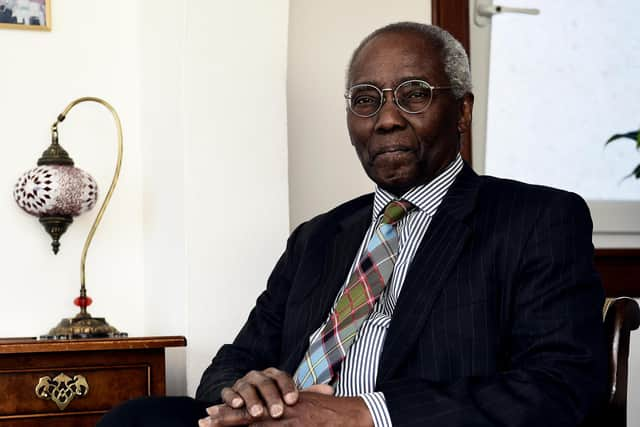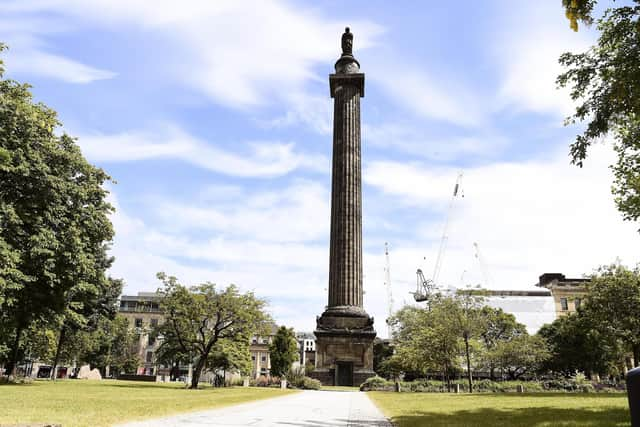Edinburgh agrees to apologise for historic links to slavery and colonialism
and live on Freeview channel 276
Let us know what you think and join the conversation at the bottom of this article.
Councillors agreed the move as they accepted all the recommendations of Professor Sir Geoff Palmer’s independent review of the Capital’s involvement in the slave trade and how to address that legacy.
As well as the apology, the review recommended statues, monuments, buildings and street names associated with slavery and colonialism should be retained and “re-presented” to explain the nature and consequences of that involvement. Sir Geoff said: “The report is clear – putting up plaques is what we should do rather than knock things down.”
Advertisement
Hide AdAdvertisement
Hide AdBefore he was appointed to lead the review, Sir Geoff had already helped draw up the wording on a new plaque for the 150ft-high Melville monument in St Andrew Square commemorating Henry Dundas, the first Viscount Melville, who as First Lord of the Admiralty delayed the abolition of the slave trade.
The review endorsed the call for a national museum about Scotland’s involvement with slavery and colonialism. Other recommendations included developing educational materials on slavery and colonialism; initiating friendship agreements with cities in countries most impacted by Edinburgh’s involvement; and commissioning a significant public artwork acknowledging Edinburgh’s links.
The council’s policy and sustainability committee agreed a working group would now be established to decide how these ideas would be taken forward.
Some of the actions recommended, including the apology, are expected to be implemented without delay.


Advertisement
Hide AdAdvertisement
Hide AdThe council agreed to carry out the review in July 2020. Sir Geoff, who is chancellor of Heriot-Watt University and a well-known human rights campaigner, chaired a review group of community leaders, arts professionals, academics, equality and heritage experts.
Their work included extensive public consultation. Overall, more than 4,000 people and 35 organisations took part.
Referring to the horrors of the slave trade, the report said: “These events happened long ago, far, in a different world where deeds that would now excite outrage were commonplace.” But it rejected the idea people should “just move on”.
It said: “Shining a light on this legacy is long overdue, and it is a necessary part of learning to live together harmoniously as citizens of today’s world. It is not about erasing history, rather it is about presenting a fuller picture that enables us all to better understand who we are, and how this history influenced the development of Edinburgh itself.


Advertisement
Hide AdAdvertisement
Hide Ad“Slavery contributed to the flow of wealth into Edinburgh that manifested itself in the elegant construction of the New Town. Compensation to slave owners was often reinvested in the railway boom. Statues were erected to honour people whose deeds linked them to perpetuation of slavery or notions of racial superiority.”
The review said as well as leading the council to act, it hoped its report would be a catalyst for other Edinburgh organisations, businesses and individuals to reflect on their own response to the legacy of slavery and colonialism and the resulting effects of racism and inequality.
Comment Guidelines
National World encourages reader discussion on our stories. User feedback, insights and back-and-forth exchanges add a rich layer of context to reporting. Please review our Community Guidelines before commenting.